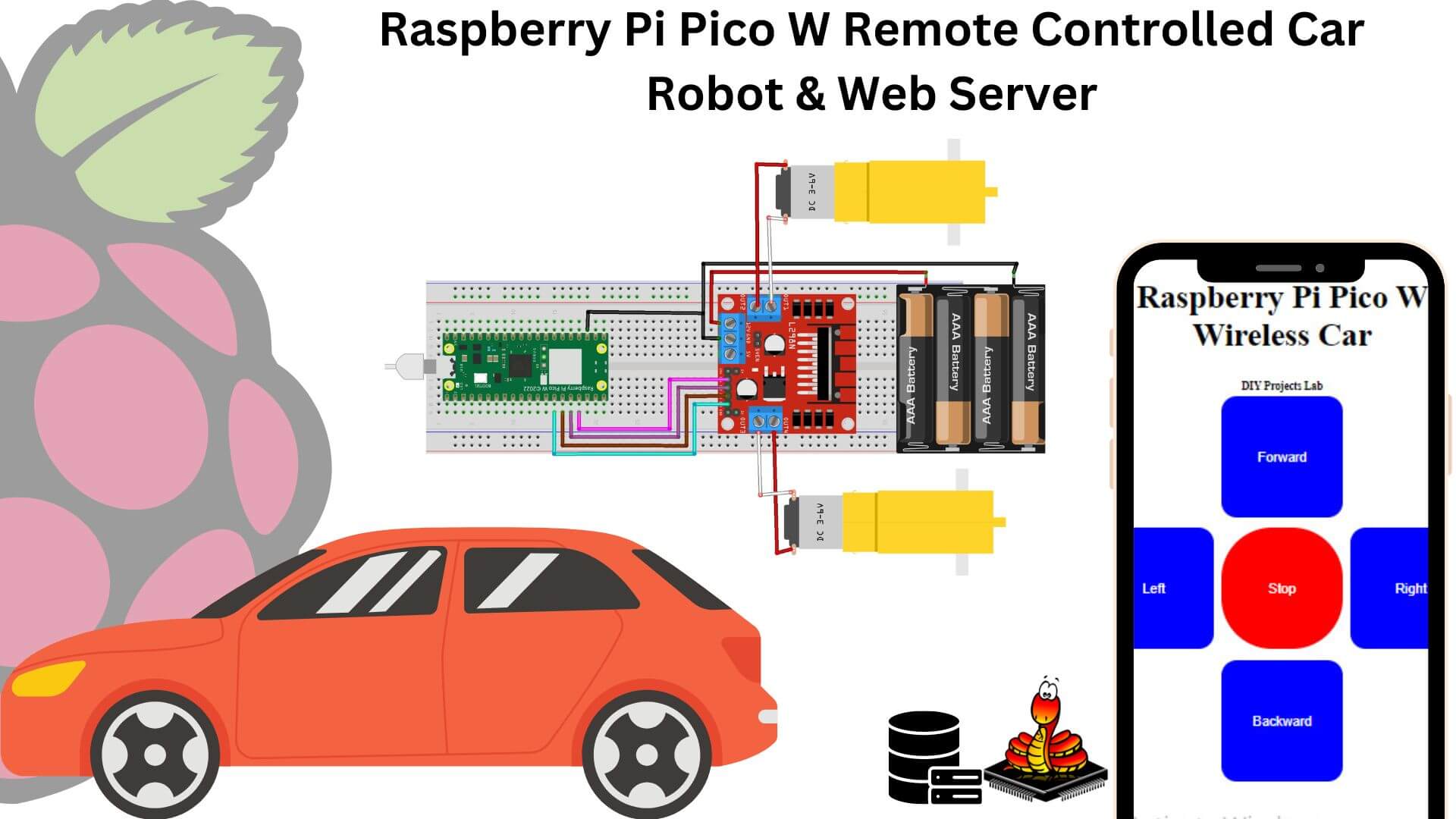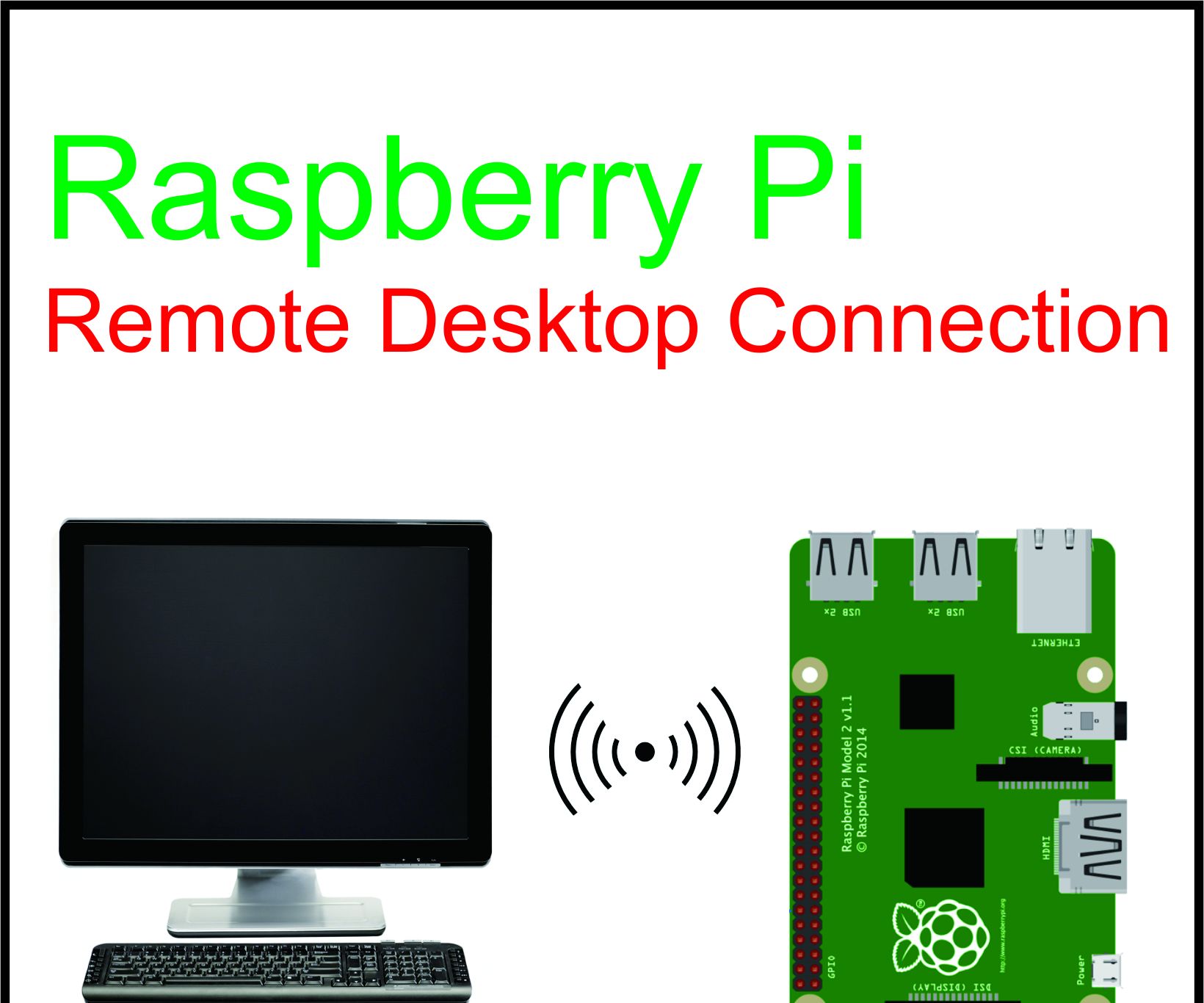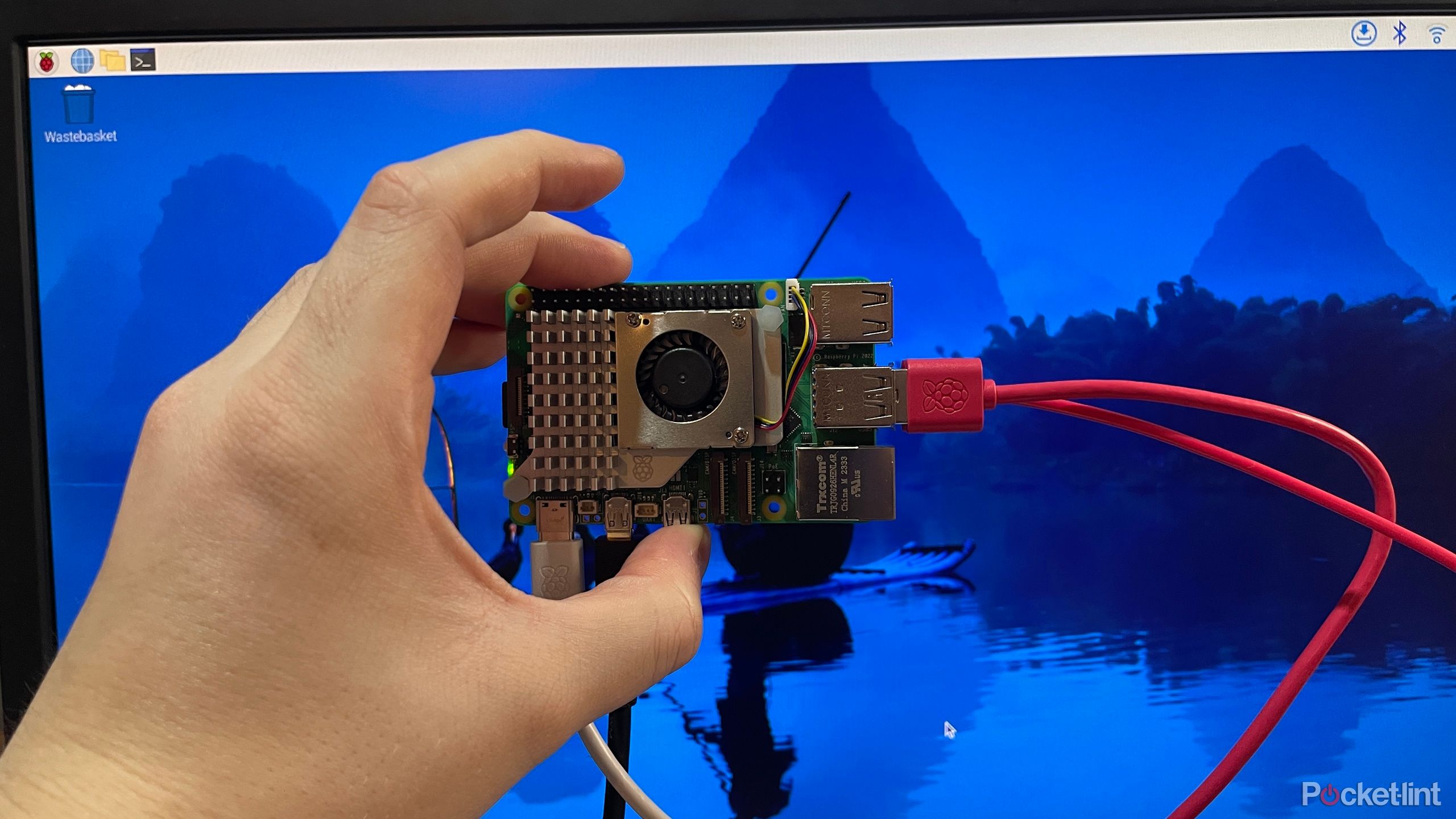RemoteIoT VPC & Raspberry Pi: Secure Cloud Control Unveiled
In today's interconnected world, the ability to manage and monitor devices remotely has become not just a convenience, but a necessity. For anyone working with IoT, especially those leveraging the versatile Raspberry Pi, the challenge often lies in establishing a secure, reliable, and scalable connection to the cloud. This is where the innovative solution of RemoteIoT VPC on Raspberry Pi steps in, promising to revolutionize how we interact with our embedded systems, offering a seamless way to connect your Raspberry Pi to the cloud, giving you the power to control and monitor your devices from anywhere.
Gone are the days of struggling with complex network configurations or worrying about the security vulnerabilities of exposing your devices directly to the internet. Whether you're a tech enthusiast tinkering with smart home projects, a hobbyist developing a custom IoT sensor network, or a professional developer managing a fleet of industrial devices, the need for robust remote access is universal. This isn’t just another tech review; it’s a deep dive into how RemoteIoT VPC provides a secure and scalable virtual private cloud environment that fundamentally simplifies remote management, enabling you to focus on innovation rather than infrastructure.
Table of Contents
- The Evolving Landscape of IoT and Raspberry Pi Connectivity
- Understanding RemoteIoT VPC: A Secure Bridge for Your Raspberry Pi
- Key Features of RemoteIoT VPC for Raspberry Pi
- Setting Up Your Raspberry Pi with RemoteIoT VPC: A Step-by-Step Guide (Conceptual)
- Performance and Reliability: Real-World Implications for RemoteIoT VPC
- Scalability and Flexibility: From Single Pi to Fleet Management
- Who Benefits Most from RemoteIoT VPC on Raspberry Pi?
- Addressing Common Concerns and Future Prospects
- RemoteIoT VPC: A Game Changer for Raspberry Pi IoT Management
The Evolving Landscape of IoT and Raspberry Pi Connectivity
The Internet of Things (IoT) has rapidly transformed from a futuristic concept into an everyday reality, permeating every aspect of our lives, from smart homes to industrial automation. At the heart of many IoT projects, the Raspberry Pi stands out as an incredibly versatile and cost-effective single-board computer. Its small form factor, low power consumption, and robust community support make it an ideal choice for everything from simple sensors to complex edge computing applications. However, as the number of deployed IoT devices grows, so does the complexity of managing them. Connecting remotely to your Raspberry Pi using SSH inside a virtual private cloud (VPC) has become a necessity, especially for those who want to manage IoT devices securely and efficiently. Traditional methods of remote access often involve port forwarding, dynamic DNS, or exposing SSH ports directly to the internet, all of which introduce significant security risks. These methods can leave your devices vulnerable to unauthorized access, data breaches, and malicious attacks. The need for a more secure, streamlined, and scalable solution is paramount, driving the demand for services like RemoteIoT VPC. This demand isn't just about convenience; it's about safeguarding critical data and ensuring the uninterrupted operation of distributed IoT systems.Understanding RemoteIoT VPC: A Secure Bridge for Your Raspberry Pi
Enter RemoteIoT VPC, a service promising streamlined remote access and enhanced security for your Raspberry Pi and other IoT devices. This review dives deep into its features, performance, and overall usability, particularly focusing on its application with Raspberry Pi. At its core, RemoteIoT VPC is designed to eliminate the complexities and risks associated with traditional remote access methods, providing a robust and reliable framework for IoT device management.What is a Virtual Private Cloud (VPC)?
Before delving into the specifics of RemoteIoT VPC, it's crucial to understand the foundational concept of a Virtual Private Cloud (VPC). In essence, a VPC is a logically isolated section of a public cloud where you can launch resources in a virtual network that you define. Think of it as your own private, secure segment within a larger cloud infrastructure. You have complete control over your virtual networking environment, including IP address ranges, subnets, route tables, and network gateways. This isolation ensures that your devices and data are separated from other users' traffic, providing a significant layer of security and privacy. Secure remote control of IoT devices on your Raspberry Pi is made possible via a VPC, which lets you establish a private and secure network connection over the internet without sacrificing data integrity or confidentiality.The RemoteIoT Advantage for Raspberry Pi Users
RemoteIoT VPC takes the concept of a VPC and tailors it specifically for IoT devices like the Raspberry Pi. It provides a secure and scalable virtual private cloud environment that simplifies the complex process of connecting and managing distributed devices. With RemoteIoT VPC, you can securely and directly connect Raspberry Pi and IoT devices from virtually anywhere. This means no more grappling with firewall rules, complex VPN setups, or static IP addresses. People can utilize RemoteIoT to configure a VPC for their Raspberry Pi devices, making the entire orchestration process intuitive and efficient. This process involves orchestrating the devices to connect to the RemoteIoT VPC, thereby guaranteeing a consistent, secure, and private connection for all your IoT needs.Key Features of RemoteIoT VPC for Raspberry Pi
The true value of RemoteIoT VPC lies in its comprehensive feature set, meticulously designed to cater to the unique demands of IoT deployments. From seamless connectivity to robust security, every aspect is engineered to provide an unparalleled remote management experience for your Raspberry Pi.Seamless Connection & Orchestration
One of the standout features of RemoteIoT VPC is its ability to offer a seamless way to connect your Raspberry Pi to the cloud. This isn't just about establishing a connection; it's about simplifying the entire orchestration process. Whether you're managing a single Raspberry Pi or a fleet of devices, RemoteIoT VPC simplifies the process, enabling you to focus on innovation rather than infrastructure headaches. The platform handles the underlying network complexities, allowing users to onboard devices quickly and efficiently. This means less time spent on network configuration and more time dedicated to developing and deploying your IoT applications. The ease of setup is a critical factor for both beginners and seasoned professionals, ensuring a low barrier to entry and rapid deployment cycles.Enhanced Security: SSH Over VPC
Security is paramount in IoT, and RemoteIoT VPC addresses this concern head-on. RemoteIoT VPC SSH Raspberry Pi is a powerful solution that enables users to remotely connect to their Raspberry Pi devices through a secure virtual private cloud (VPC). This setup leverages the inherent security benefits of a VPC, ensuring that all communications between your management console and your Raspberry Pi are encrypted and isolated. This isn't just basic encryption; it's a fundamental shift in how remote access is secured. Instead of exposing your SSH port to the public internet, which is a common vector for attacks, your Raspberry Pi communicates within the private confines of the VPC. This significantly reduces the attack surface and mitigates risks such as brute-force attacks, port scanning, and unauthorized access attempts. The system provides a secure and scalable environment, allowing you to establish a private and secure network connection over the internet without sacrificing data integrity. For anyone serious about IoT security, this feature alone makes RemoteIoT VPC an indispensable tool.Setting Up Your Raspberry Pi with RemoteIoT VPC: A Step-by-Step Guide (Conceptual)
While the exact steps might vary slightly with updates to the RemoteIoT platform, the general process of integrating your Raspberry Pi into the RemoteIoT VPC is designed to be straightforward. The goal is to make it accessible whether you are a beginner or an expert. Typically, the setup would involve: 1. **Account Creation and VPC Provisioning:** You would first create an account on the RemoteIoT platform and provision your dedicated VPC instance. This sets up the isolated network environment for your devices. 2. **Device Registration:** Each Raspberry Pi you intend to connect would need to be registered with your RemoteIoT VPC. This usually involves generating unique device credentials or certificates. 3. **Client Software Installation:** A lightweight client software or agent would then be installed on your Raspberry Pi. This agent is responsible for establishing and maintaining the secure connection to your RemoteIoT VPC. This setup leverages virtual private cloud technology to create a robust and reliable link. 4. **Configuration:** The client software on the Raspberry Pi would be configured with the generated credentials, allowing it to authenticate and connect to your private cloud network. 5. **Remote Access:** Once connected, your Raspberry Pi becomes an integral part of your VPC. You can then use standard SSH clients to connect to your Raspberry Pi via the RemoteIoT platform, effectively tunneling your SSH connection through the secure VPC. This means you're not connecting directly to the Pi's public IP, but rather through the private, secure network established by RemoteIoT. This streamlined approach means less time debugging network issues and more time developing your IoT applications. The platform abstracts away much of the underlying networking complexity, making it manageable even for those without extensive networking expertise.Performance and Reliability: Real-World Implications for RemoteIoT VPC
Beyond security and ease of setup, the performance and reliability of any remote access solution are critical. For IoT applications, where real-time data and consistent connectivity are often non-negotiable, a stable connection is paramount. RemoteIoT VPC is engineered to provide a high-performance and reliable connection, minimizing latency and ensuring data integrity. Based on the architectural design of a dedicated VPC, users can expect consistent network performance. The isolation provided by the VPC means that your network traffic is not competing with other users' traffic on the public internet, leading to more predictable speeds and lower latency. This is particularly important for applications that require rapid command execution or continuous data streaming from sensors. Reliability is also bolstered by the robust infrastructure that underpins a cloud-based VPC service. Cloud providers typically offer high availability and redundancy, meaning that the underlying network infrastructure is designed to withstand failures and maintain continuous operation. For Raspberry Pi deployments in remote or mission-critical environments, this level of reliability translates directly into reduced downtime and improved operational efficiency. The ability to maintain a persistent, secure connection even in challenging network conditions is a testament to the robust design of RemoteIoT VPC.Scalability and Flexibility: From Single Pi to Fleet Management
One of the most compelling aspects of RemoteIoT VPC is its inherent scalability. Whether you're managing a single Raspberry Pi for a personal project or overseeing a vast fleet of hundreds or thousands of devices spread across various locations, RemoteIoT VPC offers the flexibility to grow with your needs. The architecture allows for easy onboarding of new devices into your existing VPC. As your IoT ecosystem expands, you don't need to reconfigure your entire network or manage complex VPN tunnels for each new device. The RemoteIoT platform provides the tools to manage multiple Raspberry Pi instances within the same secure environment, centralizing control and monitoring. This capability is invaluable for businesses and organizations deploying IoT at scale, as it drastically reduces the operational overhead associated with device management. Furthermore, the flexibility extends to how you interact with your devices. With RemoteIoT VPC, managing your Raspberry Pi remotely has never been easier. You can execute commands, transfer files, update software, and troubleshoot issues, all from a centralized management interface or via standard SSH commands. This level of control, combined with the underlying security of the VPC, empowers users to maintain their IoT deployments efficiently and securely, regardless of their size or complexity. The ability to scale from a single device to an enterprise-level deployment without compromising on security or performance is a significant advantage.Who Benefits Most from RemoteIoT VPC on Raspberry Pi?
The broad appeal of RemoteIoT VPC on Raspberry Pi lies in its ability to solve a common pain point for a diverse range of users. This solution offers tangible benefits to anyone involved with IoT, regardless of their technical background or project scale.Hobbyists and Tech Enthusiasts
For individuals passionate about smart home automation, custom sensor networks, or personal robotics projects, RemoteIoT VPC simplifies the often-intimidating task of secure remote access. No longer do you need to be a network engineer to safely control your Raspberry Pi from outside your home network. This solution offers a user-friendly pathway to advanced remote capabilities, allowing hobbyists to focus on the creative and functional aspects of their projects rather than getting bogged down in networking complexities. The peace of mind that comes from knowing your devices are securely connected, without exposing them to public internet vulnerabilities, is invaluable. **Professional Developers and Businesses:** For those building commercial IoT solutions, RemoteIoT VPC provides a robust, scalable, and secure foundation. It addresses critical enterprise requirements such as: * **Centralized Management:** Efficiently manage hundreds or thousands of devices from a single console. * **Enhanced Security Compliance:** Meet stringent security requirements by isolating device networks and encrypting all communications. * **Reduced Operational Costs:** Streamline deployment and maintenance, reducing the need for on-site visits or complex manual configurations. * **Faster Time-to-Market:** Accelerate development and deployment cycles by simplifying network provisioning. Whether you're a tech enthusiast, hobbyist, or professional developer, this solution offers a compelling answer to the challenges of remote IoT management.Addressing Common Concerns and Future Prospects
While RemoteIoT VPC presents a compelling solution, it's natural to consider potential concerns. One common question might revolve around pricing models – cloud services often operate on a pay-as-you-go basis, which can sometimes be unpredictable. Users should always review the specific pricing structure offered by RemoteIoT to ensure it aligns with their budget and usage patterns. Another consideration could be the learning curve for those completely new to VPC concepts, although RemoteIoT aims to simplify this. The documentation and community support will be crucial here. Looking to the future, the integration of RemoteIoT VPC with emerging IoT trends seems promising. As edge computing becomes more prevalent, the ability to securely manage and update devices at the network edge will be critical. RemoteIoT VPC's secure tunneling capabilities are perfectly positioned to support these evolving architectures, enabling seamless deployment of AI/ML models on Raspberry Pi devices and secure data offloading to the cloud. The continuous evolution of IoT security threats also means that platforms like RemoteIoT VPC will need to constantly innovate, incorporating advanced threat detection and prevention mechanisms. This isn't just about current needs; it's about future-proofing your IoT infrastructure.RemoteIoT VPC: A Game Changer for Raspberry Pi IoT Management
In this comprehensive review, we have explored the multifaceted benefits and capabilities of RemoteIoT VPC for Raspberry Pi. From its foundational promise of secure, private connectivity to its practical applications in simplifying device management and enhancing security, it's clear that RemoteIoT VPC offers a powerful solution for anyone looking to harness the full potential of their Raspberry Pi in an IoT context. Nowadays, connecting remotely to your Raspberry Pi using SSH inside a virtual private cloud (VPC) has become a necessity, especially for those who want to manage IoT devices effectively. RemoteIoT VPC SSH Raspberry Pi is essentially a setup that allows you to remotely access your Raspberry Pi using Secure Shell (SSH) over a Virtual Private Cloud (VPC). This setup leverages virtual private cloud technology to create an unparalleled secure and direct connection. It eliminates the headaches of traditional networking complexities and significantly bolsters the security posture of your IoT deployments. Whether you're managing a single device or an expansive fleet, the scalability and ease of use provided by RemoteIoT VPC make it an indispensable tool. Are you ready to dive into the world of RemoteIoT VPC on Raspberry Pi? The future of secure and seamless IoT device management is here. If you've been searching for a robust, secure, and user-friendly way to manage your Raspberry Pi devices remotely, RemoteIoT VPC warrants your serious consideration. We encourage you to explore their platform and experience firsthand how it can transform your IoT projects. Have you used RemoteIoT VPC or a similar solution for your Raspberry Pi? Share your experiences and insights in the comments below, or explore our other articles on enhancing your IoT security and deployment strategies.


Detail Author:
- Name : Miss Crystal Harber IV
- Username : esta61
- Email : mfranecki@gmail.com
- Birthdate : 1971-08-21
- Address : 2315 Allie Knolls Suite 187 Naderland, CA 91047
- Phone : +1-762-815-4684
- Company : Rutherford, Will and Kessler
- Job : Environmental Engineering Technician
- Bio : Sed aut in praesentium. Et architecto rerum rerum voluptatibus perspiciatis. Recusandae eum tempore est quia rerum.
Socials
twitter:
- url : https://twitter.com/stephon3451
- username : stephon3451
- bio : Sunt dolorem consequatur delectus vel aperiam sed. Id quidem dolores maxime. Consequatur fugit eos harum vero.
- followers : 153
- following : 1358
instagram:
- url : https://instagram.com/stephon_steuber
- username : stephon_steuber
- bio : Illo necessitatibus aut est tenetur optio. Voluptatem aut laboriosam iusto ut.
- followers : 3564
- following : 2837
linkedin:
- url : https://linkedin.com/in/stephon_dev
- username : stephon_dev
- bio : Aliquam est sed et nemo perspiciatis rem maxime.
- followers : 1514
- following : 2513
tiktok:
- url : https://tiktok.com/@stephonsteuber
- username : stephonsteuber
- bio : Quae voluptatum corrupti repellendus est.
- followers : 1906
- following : 1356
facebook:
- url : https://facebook.com/stephon.steuber
- username : stephon.steuber
- bio : Molestias nam non cumque in saepe ea quis.
- followers : 3752
- following : 2977
